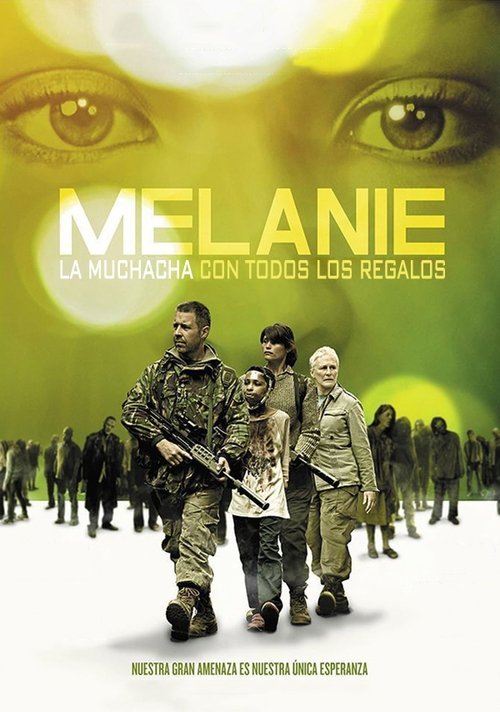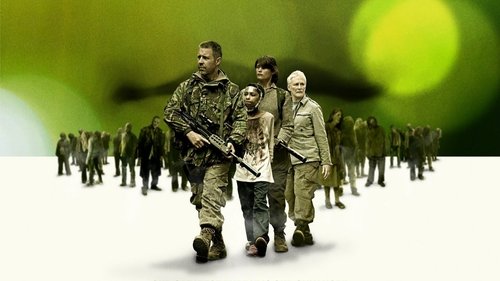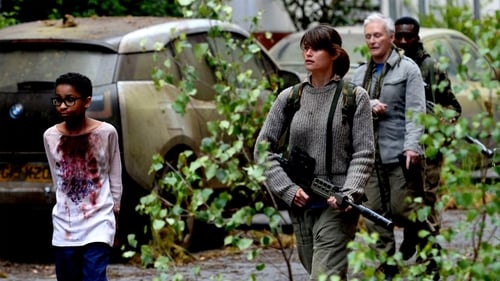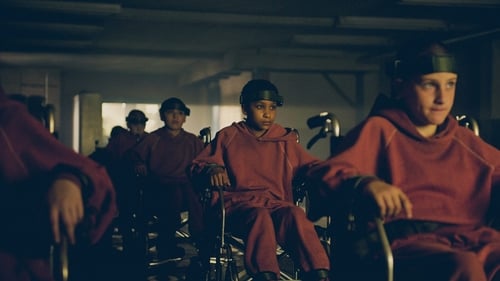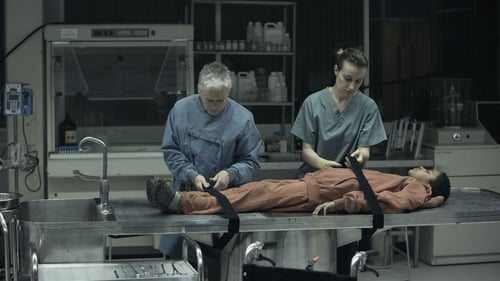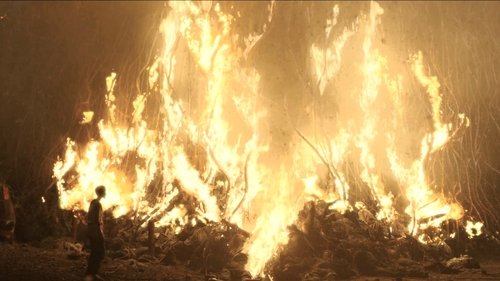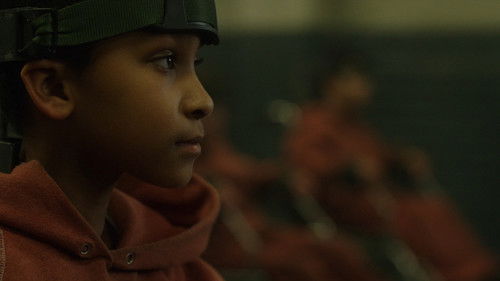
Marco-Hugo Landeta Vacas
8
|
ago. 24, 2025
(CASTELLANO) Lo interesante de Melanie. La chica con todos los dones es que consigue darle aire fresco a un género que parecía ya exprimido. Desde el principio la historia recuerda a muchas otras —la infección, la supervivencia, los grupos enfrentados—, pero lo hace desde un ángulo diferente, más centrado en la reflexión que en el susto fácil.
La relación de Melanie con los adultos marca el tono desde el inicio. No es la típica trama de “humanos contra zombis”, sino algo más incómodo y complejo: ¿qué pasa cuando el “enemigo” es también un niño capaz de sentir, pensar y emocionarse? Esa mezcla convierte cada escena en algo más perturbador de lo habitual.
En algunos momentos la película recuerda a El señor de las moscas, sobre todo cuando los personajes deben enfrentarse a un mundo sin normas y poner a prueba sus propias convicciones. La tensión no surge solo de los ataques de los infectados, sino también de las decisiones morales de quienes intentan sobrevivir.
Colm McCarthy dirige con sobriedad, sin adornos, lo que da solidez al relato. Glenn Close y Gemma Arterton cumplen con lo esperado, pero quien realmente se queda en la memoria es Sennia Nanua: una interpretación sorprendente, capaz de transmitir ternura y amenaza en cuestión de segundos.
Más allá del suspense y la acción, lo que más impacta es la pregunta de fondo: ¿seguimos peleando por lo que conocemos o aceptamos que quizá el futuro pertenece a otros? Esa duda, que atraviesa toda la historia, es lo que da peso a la película y la diferencia de tantas otras del género.
Sin reinventar por completo la fórmula, Melanie. La chica con todos los dones logra ser intensa, original y, sobre todo, memorable. Es de esas películas que te dejan pensando, porque al final habla menos de zombis y mucho más de nosotros.
(ENGLISH) What’s interesting about Melanie: The Girl with All the Gifts is how it manages to breathe new life into a genre that seemed exhausted. From the start, the story feels familiar —infection, survival, divided groups— but it approaches it from a different angle, one that leans more on reflection than on cheap scares.
Melanie’s relationship with the adults sets the tone early on. This isn’t the typical “humans versus zombies” setup, but something more unsettling and complex: what happens when the so-called “enemy” is a child who can think, feel, and empathize? That ambiguity makes every scene more disturbing than expected.
At times, the movie recalls Lord of the Flies, especially when the characters are forced to survive in a world without rules, testing their morals as much as their strength. The tension doesn’t just come from the infected, but from the difficult choices the survivors must face.
Colm McCarthy directs with restraint, keeping things grounded and solid. Glenn Close and Gemma Arterton deliver strong performances, but it’s Sennia Nanua who leaves the deepest impression: her acting balances innocence and menace in a way that feels both surprising and powerful.
Beyond suspense and action, what lingers most is the underlying question: do we keep fighting for the world we know, or do we accept that the future may belong to someone else? That doubt runs through the entire story, giving the film a philosophical weight that sets it apart from others in the genre.
Without reinventing the formula completely, The Girl with All the Gifts stands out as an intense, original, and memorable work. It’s the kind of film that sticks with you, because in the end it speaks less about zombies and more about us.
